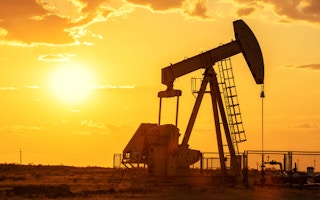Across Asia Pacific, economic powerhouses China, Japan, and South Korea have announced net zero carbon pledges to meet their climate goals. These announcements were celebrated by many people around the world as key milestones, or signals that these governments were taking their climate commitments seriously.
But in reality, none of these countries are on track to meet their climate targets.
The fact remains that five years after the landmark Paris Agreement on climate change was signed, we’re still worse off than we were back then. Our chances of reversing course slip further away each day, as these countries continue to invest in and build fossil fuel infrastructure rather than focus on fair and just renewable energy sources.
Net zero or zero action?
There is nothing wrong with a symbolic pledge, which represents hope and action. The main issue with net zero pledges is that these pledges do not advance decisive climate action but allow business as usual. They set on far-flung targets who would be “someone else’s problem”.
They bank on unproven technologies, such as carbon capture and storage, that may or may not be developed decades later to solve the climate emergency by preventing carbon dioxide from being released or sucking it from the atmosphere. Worst still, with false solutions such as carbon capture through tree plantations, the burden typically falls on global South countries, several of them in Asia. These countries, including Bangladesh, Indonesia and the Philippines, have done little to cause the climate crisis — but will suffer the most.
There is simply no proof that these technologies are scalable and economically viable, but indeed they form a convenient solution for pushing back decisive climate action and phasing out the greatest carbon emitter — fossil fuels.
“
With false solutions such as carbon capture through tree plantations, the burden typically falls on Global South countries.
These scenarios are not hypothetical. Japan’s net zero pledge for example heavily relies on unproven technologies such as carbon capture and storage. It goes as far as to state that the goal would not be achieved if these technologies are not fully realised. By then, we would be stuck at a point of no return for the climate, having entirely missed the global 1.5 degree goals.
Most alarmingly, these pledges do not factor in overseas investments by Japanese, Chinese and Korean financial institutions, which end up forming the bulk of their carbon emissions.
China, South Korea and Japan are the top global lenders for coal energy, funding more than 69 gigawatts of coal overseas. China’s Global Power Database states that Chinese investments for coal-fired power increased by 34 per cent a year between 2009 and 2018.
According to the 2020 Production Gap Report, “to follow a 1.5°C-consistent pathway, the world needs to reduce fossil fuel production by approximately 6 per cent every year between 2020 and 2030. Instead, countries have been planning and projecting an average annual increase of 2 per cent”. These plans would result in more than two times the production consistent with the 1.5°C limit by 2030.
As the United Nations Secretary-General Antonio Guterres recently stated in his State of Our Planet speech, “we are going in the wrong direction”.
In addition, the report states that over two-thirds of public finance for fossil fuels came from China, Japan, Canada, and South Korea. And to rub salt into the wounds of frontline communities, this included US$12 billion per year for the exploration and extraction of new fossil fuel reserves.
It is known that matured countries in the Global North have historically emitted more carbon dioxide — and economically benefited from this at the expense of the global climate. They should therefore reduce fossil fuel production by more than the stated 6 per cent.
But Asia is no laggard. Economic superpowers like China, Japan and South Korea possess the resources, knowledge and technology to peak and decrease fossil fuel production in favour of clean energy.
It is too easy to set a target 30 years from now when the buck would be passed to a future leader.
What is needed now, is actual climate action plans that detail how total carbon emissions will be lowered. The plans must include a managed decline of fossil fuels by 2030 and how these countries intend to achieve these goals (such as by investing in just, fair, renewable energy solutions that already exist in scalable, economically-feasible forms).
As we battle the dual crises of climate change and Covid-19, governments must seize this opportunity to re-shape our economies and accelerate green investments rather than fossil fuels development. But research has shown that the opposite is happening. This is despite strong evidence that the economic benefit of green stimulus packages far outweighs fossil fuel investments.
Governments in Asia have a path laid out for them. They can choose to be the “first movers”, on the right side of history, by reversing the trend of oil and gas production increase, and ensuring a sizable year-on-year decrease.
Five years from now, when humankind looks back and celebrates the 10th anniversary of the Paris Agreement, our societies and economies will need to be well on their way to having phased-out oil and gas production. There is no time to wait, we must start now.
Norly Mercado is the Asia regional director of climate action group 350.org


















